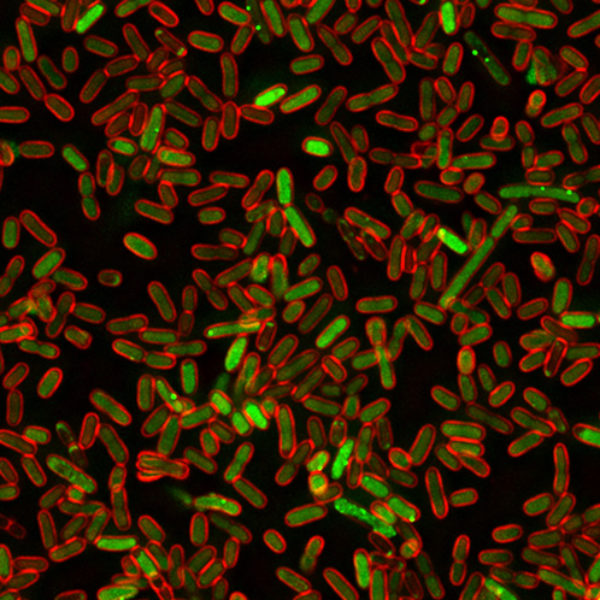A team led by researchers at The University of Texas at Austin and Baylor College of Medicine has applied an unconventional approach involving bacteria to discover human proteins that can lead to DNA damage and promote cancer. This could lead to new tests to identify people who are likely to develop cancer. Reported in the journal Cell, the study also proposes biological mechanisms by which these proteins can damage DNA, opening possibilities for future cancer treatments.
“This study is opening up new avenues for discoveries of novel mechanisms that protect our genomes and how their dysfunction can alter the integrity of our DNA and cause cancer,” said co-corresponding author Kyle Miller, associate professor of molecular biosciences at UT Austin, who is also a member of the LIVESTRONG Cancer Institutes at the Dell Medical School and Baylor’s Dan L Duncan Comprehensive Cancer Center.
The study’s other co-corresponding authors are Susan Rosenberg and Christophe Herman at Baylor.
Mutations that cause cancer can be the result of DNA damage. External factors such as tobacco smoke and sunlight can damage DNA, but most damage seems to result from events that occur within cells and is mediated by cellular components, including proteins. Despite the importance of these internal events, they have not been studied extensively. One way human proteins can cause DNA damage is by being overproduced, which is a relatively frequent cellular event.
To uncover these DNA “damage-up” proteins in humans, the researchers took an unconventional approach. They first searched for proteins that, when overproduced, would cause DNA damage in the bacterium E. coli. Although bacteria and people are different, their basic biological processes are similar.
The researchers genetically modified bacteria so they would fluoresce red when DNA was damaged. Then, they overexpressed each of the 4,000 genes present in E coli individually and determined which ones made bacteria glow red.
“We uncovered an extensive and varied network of proteins that, when overproduced, alter cells in ways that lead to DNA damage,” said Rosenberg, professor and cancer researcher at Baylor and leader of the Cancer Evolvability Program at the Dan L Duncan Comprehensive Cancer Center. Rosenberg, along with Miller, receives support from the Cancer Prevention and Research Institute of Texas (CPRIT).
When the researchers looked for human protein relatives of the DNA “damage-up” proteins they had found in bacteria, they identified 284. They determined that these human proteins are linked to cancer more often than random sets of proteins. In addition, the proteins’ RNAs, an indicator of protein production, predicted mutagenesis in tumors and poor patient prognosis. When the researchers overproduced these proteins in human cells in the lab, half of the proteins triggered DNA damage and mutation.
“Some of the proteins and their mechanisms were known to be involved in cancer,” said Herman, a professor at Baylor and member of the Duncan Cancer Center, “but many others were not suspected of being in the cancer-causing list.”
Because the team also shed light on different mechanisms that lead to cancer-promoting DNA damage, Rosenberg said, “In the future, this finding may lead to new ways to identify people who are likely to develop cancer so that strategies to prevent it, slow it down or catch it early can be used.”
“It is yet another example of the power of model organisms to uncover basic biological processes that can shine a light on how human cells and cancer work,” Miller said.
The researchers still are not sure why bursts in the production of these DNA-damaging proteins occur in the first place.
The study’s two co-first authors were students earning their doctorates: Jun Xia at Baylor and Liya Chiu at UT Austin.
This work was supported by the National Institutes of Health, the W.M. Keck Foundation, CPRIT, the American Cancer Society, the Dan L Duncan Comprehensive Cancer Center and the John S. Dunn Gulf Coast Consortium for Chemical Genomics.



